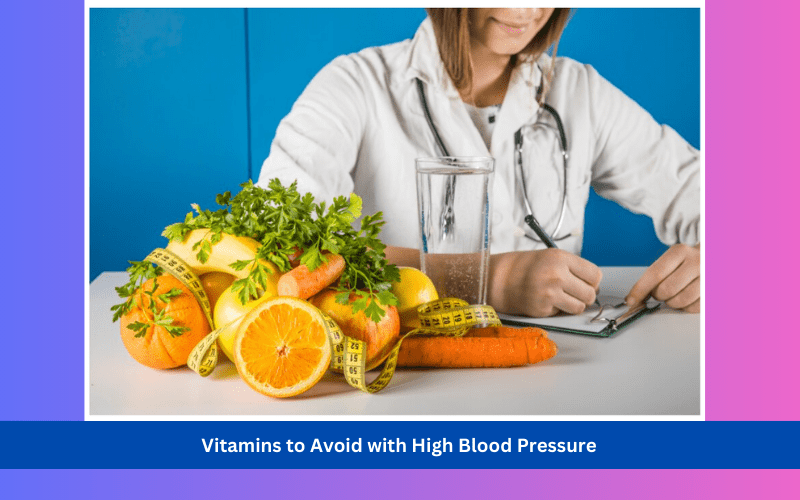Managing high blood pressure is a delicate balancing act that requires careful attention to diet, lifestyle, and medication. While vitamins are essential for overall health, certain supplements can adversely affect blood pressure.
Understanding the Impact of Vitamins on Blood Pressure
Why Some Vitamins Can Be Harmful
While vitamins are generally beneficial, some can interfere with vitamins to avoid with high blood pressure management. Certain vitamins may cause blood vessels to constrict, affect heart rate, or interact negatively with blood pressure medications. Understanding which vitamins to avoid can help you control your blood pressure levels better.
Top 5 Vitamins to Avoid with High Blood Pressure
1. Vitamin E
Why Vitamin E Can Be Problematic
Vitamin E is known for its antioxidant properties, but high doses can increase blood pressure. It affects the body’s ability to regulate blood clotting and can interfere with medications designed to manage hypertension.
Alternatives to Consider
Instead of high-dose supplements, opt for foods rich in vitamin E, such as nuts and seeds, which provide safer levels of this nutrient without the risk of elevating blood pressure.
2. Vitamin A
The Risks of Vitamin A Overload
Excessive intake of vitamin A can lead to toxicity, which may cause increased blood pressure and other health issues. When taken in large amounts, this vitamin can stress the liver and cardiovascular system.
Safer Sources of Vitamin A
To avoid high blood pressure risks, obtain vitamin A from dietary sources like carrots, sweet potatoes, and leafy greens, which provide a balanced amount of this essential nutrient.
3. Vitamin D
How Vitamin D Affects Blood Pressure
While vitamin D is crucial for bone health, high doses can lead to elevated blood calcium levels, which can increase blood pressure. It’s essential to monitor vitamin D intake carefully, especially if you’re prone to hypertension.
Managing Vitamin D Intake
Consider getting vitamin D from moderate sun exposure and fortified foods rather than high-dose supplements. Regular blood tests can help ensure you’re maintaining healthy levels without overdoing it.
4. Vitamin B6
The Link Between Vitamin B6 and Blood Pressure
Excessive vitamin B6 can cause nerve damage and negatively impact blood pressure regulation. Over-supplementation might lead to side effects that complicate blood pressure management.
Balanced Vitamin B6 Consumption
Focus on getting vitamin B6 from a varied diet, including foods like bananas, chickpeas, and fish, to maintain a healthy balance without risking high blood pressure.
5. Vitamin K
Vitamin K and Its Effects on Hypertension
Vitamin K plays a crucial role in blood clotting, but high levels can interfere with blood pressure medications, particularly blood thinners. This interference can make it harder to manage hypertension effectively.
Safe Ways to Get Vitamin K
Consume vitamin K in moderation through dietary sources such as leafy greens and broccoli, which provide this nutrient without the risk associated with high-dose supplements.
Conclusion
Managing anxiety and high blood pressure involves a comprehensive approach that includes being mindful of your vitamin intake. While vitamins are essential for health, certain ones can adversely affect blood pressure. By avoiding high doses of vitamins E, A, D, B6, and K, and focusing on obtaining these nutrients from a balanced diet, you can better manage your hypertension and maintain overall well-being.






